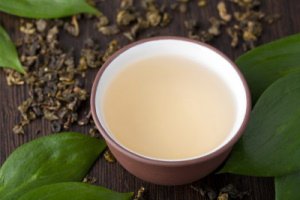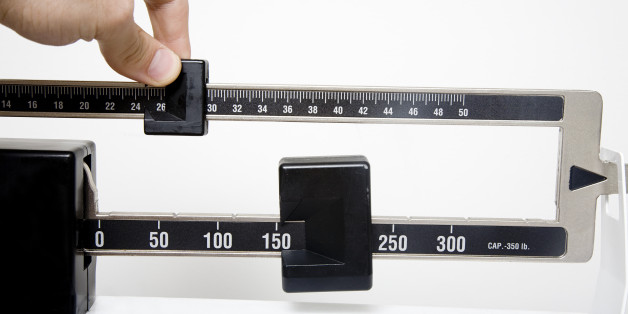Running: Gluten in Wheat Products Bind to the Lining of the Small Intestine and Turn to Fat - Part 3
Copyright ?2007 Ed Bagley
Even creepier is this fact: Gluten, the most common lectin found in wheat and other grains, binds to the lining of the small intestine, causing substantial inflammation and painful irritation in some blood types-especially Type O.
Yikes! This is serious business for all O positive blood types and especially runners because what is binding to the small intestines eventually turns to fat.
Type O blood types thrive on intense physical exercise and animal protein. According to Dr. D'Adamo, the digestive tracts of all Type Os retain the memory of ancient times.
The profile of an O blood type person (know as The Hunter) is a meat eater with a hardy digestive tract who has an overactive immune system, is intolerant to dietary and environmental adaptations, responds best to stress with intense physical exercise, and requires an efficient metabolism to stay lean and energetic. This is a perfect description of me, an O positive blood type.
The high-protein hunter-gatherer diet and the enormous physical demands placed on the systems of early Type Os probably kept most primitive humans in a mild state of ketosis, says D'Adamo, a condition in which the body's metabolism is altered.
Ketosis is the result of a high-protein, high-fat diet that includes very few carbohydrates.
The body metabolizes the proteins and fats into ketones, which are used in place of sugars in an attempt to keep glucose levels steady. The combination of ketosis, calorie deprivation, and constant physical activity make for a lean, mean hunting machine.
The success of the Type O diet depends on the use of lean, chemical-free meats, poultry and fish. Thus, by restricting your consumption of grains, breads, legumes and beans, you will lose weight on the Type O diet.
Your O blood type diet will also restore your natural genetic rhythm, according to Dr. D'Adamo.
I had to learn the hard way that, contrary to what most magazine articles advocate and promote-and this advice is by nutrition experts who apparently know little about the effect of foods on different blood types-the leading factor in weight gain for Type Os is the gluten found in wheat germ and whole wheat products.
I was stunned to learn this scientific fact.
The reason this occurs in O blood types is that the gluten acts on Type O metabolisms to create the exact opposite of ketosis.
Instead of keeping you lean and in a high-energy state, the gluten lectins inhibit your insulin metabolism, interfering with the efficient use of calories for energy.
Dr. D'Adamo says that eating gluten is like putting the wrong kind of octane in your engine. Instead of fueling your engine, it clogs it up.
Ninety-five percent of the lectins we absorb are processed by our body, according to D'Adamo, but at least 5% of the lectins we eat are filtered into our bloodstream, where they react with and destroy red and white blood cells.
Type Os should avoid the most common lectins found in wheat and other grains because they can bind to the lining of the small intestine and turn to fat, causing substantial inflammation and painful irritation in O blood types. These lectins can be beneficial for other blood types but not Os.
Wheat products are a primary culprit in Type O weight gain. The glutens in wheat germ interfere with the Type O metabolic processes. This means all breads, bagels, English muffins, oat bran muffins, wheat bran muffins, sprouted wheat bread and whole wheat bread are all avoids for Type Os.
Other factors can also contribute to O positive blood type weight gain, such as corn (to a lesser degree) and thyroid regulation (Os have low levels of thyroid hormone, which can generate hypothyroidism resulting in weight gain, fluid retention, muscle loss and fatigue).
It is also important to note that food allergies are not digestive problems, but they are immune system reactions to certain foods, according to D'Adamo. Your immune system literally creates an antibody that fights the intrusion of the food into your system.
This research and observation of the effect of digesting certain foods in particular blood types is lost on popular nationally-circulated running magazines.
I have stopped reading these magazines because they always recommend eating carbohydrate rich foods immediately following an intense workout to replace the carbs you have burned. That advice may have been great for other blood types, but it could be the "kiss of death" for O blood types.
(Editor's Note: This is Part 3 of a 5-Part Article.)
-
Moms Lose The Fat One Day At A Time
Just like great cities were not built in
-
The Body Makeover Challenge
The body makeover challenge aims to provide you with different te
-
Eight Foods with High Satiety
If you are attempting to diet, you should be aware of the satiety of
-
Im A Nutritionist. Heres How I Plan To Lose 20 Pounds
As a nutritionist and health consultant in private pr
-
Why Anxiety and Stress Might Be Causing Your Weight Gain
Anxiety and stress can cause a number of undesired effects in your bo
-
Weight Loss And Exercising Staying Power Three Magic Words
My name is Greg Ryan. I am a best selling author of online e-books, hi
- DON'T MISS
- Laser Skin Tightening Tools Review
- How To Avoid Gaining The Holiday 7
- Choose To Lose The Simplicity Of Weight Loss And Understanding Emotional Eating
- Why Slimming down Is indeed Important to Your Health
- Shed your Pounds Naturally with My Weight LossTips
- Body Mass Index BMI Are You At A Healthy Weight
- Core Strength Exercises
- South Beach Diet Tips
- How To Lose Weight Without So Much Hassle
- Exercise Tips For Effective Weight Loss




